Business
Tomato prices crash in Lagos amid harvest season glut
Published
2 months agoon
By
Ekwutos Blog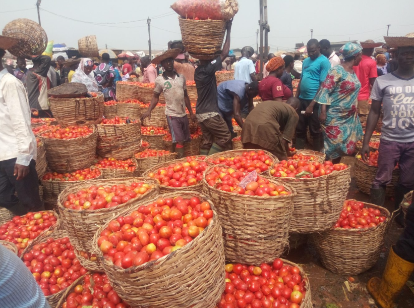
The price of tomatoes in Lagos and other parts of Nigeria has significantly dropped due to a glut caused by the ongoing harvest season.
Farmers and traders have attributed the price crash to the surplus supply, which occurs annually between January and March.
A tomato glut refers to a situation where an excess harvest of tomatoes leads to a price drop.
According to reports by the News Agency of Nigeria, the price of a 50kg basket of tomatoes now sells for as low as N10,000 to N12,000, depending on the species. In the northern part of the country, a 25kg plastic crate is priced between N6,000 and N7,000.
In Lagos, the price of a big basket of tomatoes has fallen to N13,000–N15,000, compared to the N140,000–N150,000 price range recorded in May 2024. This represents a decrease of approximately 90% over an eight-month period.
The Chairman of the Tomato Growers and Processors Association of Nigeria (Kaduna State Chapter), Mr. Rabiu Zuntu, said the glut is a result of the January-to-March harvest period, during which tomato plants produce an abundance of fruits. This surplus often leads to reduced prices and significant post-harvest losses.
“One of the problems we face in the tomato sector is that the period from January, February, and March is that of tomato glut,” Zuntu explained.
He added that approximately 50% of harvested tomatoes are lost during this period due to inadequate storage facilities and limited processing capabilities.
“Presently, we only have a few functioning tomato processing facilities to help reduce the post-harvest losses we witness annually,” he said.
Urgent need for preservation
Zuntu urged consumers to take advantage of the low prices to stock up and preserve tomatoes for future use.
“We usually advise consumers this period to preserve as much tomatoes as they can to cushion the effect when the produce gets expensive later in the year,” he said.
- He further highlighted small-scale preservation methods that households can adopt, such as blending, boiling, and storing tomatoes in airtight jars, which can last up to six months.
- Another traditional method involves burying tomatoes underground in a humid environment to maintain freshness.
“However, these preservation methods may not be able to work for large-scale preservation and storage of the produce,” Zuntu cautioned.
Vendors confirm price drop
Traders in Lagos also acknowledged the significant price drop. Mrs. Queen Oloyede, a trader at Surulere, noted that a 50kg basket of tomatoes now sells for N15,000–N20,000 at the Mile 12 market.
“Since a week ago, a basket of 50kg tomatoes sells at the Mile 12 market for between N15,000 and N20,000. I advise customers to begin to stock up for the time the produce will be scarce in the market,” Oloyede said.
However, Mrs. Judith Amen pointed out that the highest quality tomatoes still come at a premium price. “Presently, the highest quality of tomatoes at the Mile 12 market sells between N35,000 and N37,000 for a 50kg basket. People should preserve the quantity they can buy,” she advised.
Consumers share challenges
Some consumers expressed concerns about their ability to preserve tomatoes effectively. Mrs. Catherine Eigbedion, a resident of Agege, attributed her limited preservation efforts to an inconsistent electricity supply.
“With tomatoes in surplus this period and at a favorable price, it is advisable to buy in bulk and stock for the scarce days. Not everyone knows the local preservation techniques due to the inconsistent electricity situation. I just buy enough to last me for a week,” Eigbedion said.
Similarly, Mrs. Ebere Dudu from Dopemu emphasized the unpredictability of tomato prices. “We are glad that there are enough fresh tomatoes in the market and they are very affordable. Because we cannot predict the price of tomatoes in the coming months, I buy as much as I can and preserve for the rainy days,” she explained.

You may like


Peter Obi Criticizes President Tinubu’s Economic Management
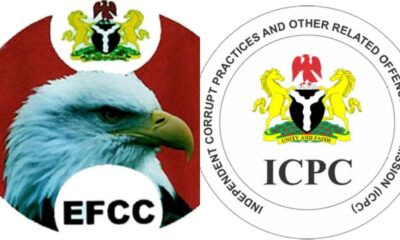

EFCC, ICPC asked to probe defence minister over alleged abuse of office


Gov Nwifuru arrests 6 commissioners, LG chairman over alleged breach of contract terms


Muslim leaders beg President Tinubu to review emergency rule in Rivers


Transfer: Leeds United line up move for Sanusi
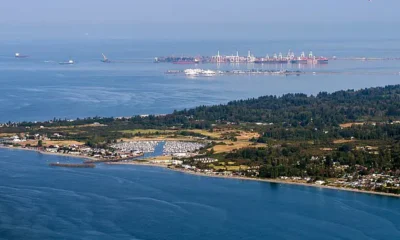

Locals in coastal exclave have to drive through Canada to reach US
Business
BREAKING: Tinubu sacks NNPCL CEO, Mele Kyari, appoints Bayo Ojulari
Published
5 hours agoon
April 2, 2025By
Ekwutos Blog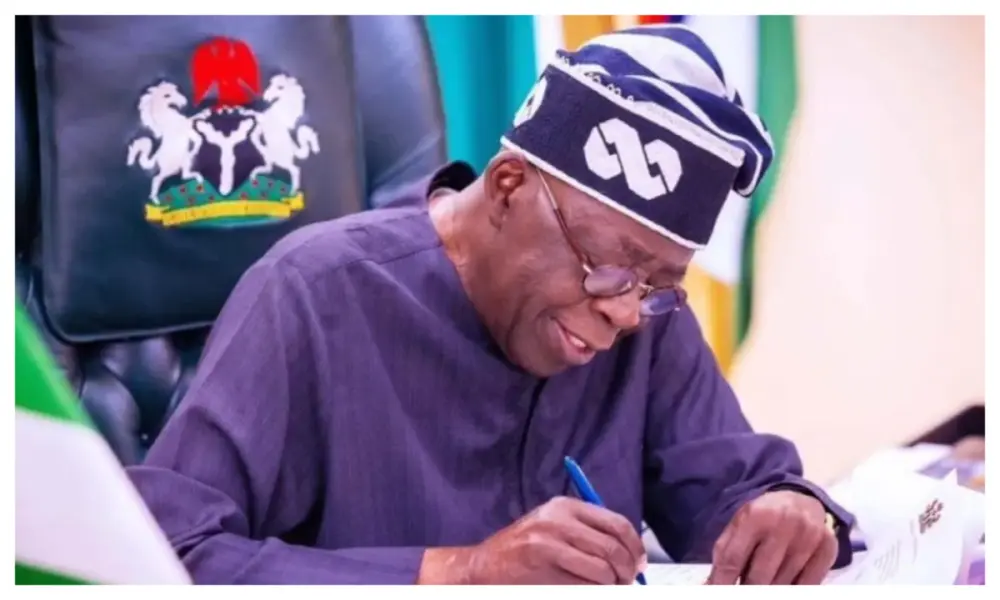
President Bola Tinubu has sacked the Group Chief Executive Officer (CEO) of the Nigerian National Petroleum Company Limited, NNPCL, Mele Kyari.
Tinubu also dissolved its board, removing the Chairman, Chief Pius Akinyelure.
Bayo Onanuga, Special Adviser to the President on information and strategy, announced this in a statement on Wednesday.
Onanuga said Tinubu invoked his powers under section 59(2) of the Petroleum Industry Act (PIA) 2021 to carry out the sweeping reconstitution, citing the need for “enhanced operational efficiency, restored investor confidence, and a more commercially viable NNPC”.
He announced that Tinubu has now approved a new 11-man board, which has Engineer Bashir Bayo Ojulari as the Group CEO and Ahmadu Musa Kida as non-executive chairman.
According to the statement, “Adedapo Segun, who replaced Umaru Isa Ajiya as the chief financial officer last November, has been appointed to the new board by President Tinubu.
“Six board members, non-executive directors, represent the country’s geopolitical zones. They are Bello Rabiu, North West, Yusuf Usman, North East, and Babs Omotowa, a former managing director of the Nigerian Liquified Natural Gas( NLNG), who represents North Central.
“President Tinubu appointed Austin Avuru as a non-executive director from the South-South, David Ige as a Non-executive director from the South West, and Henry Obih as a non-executive director from the South East.
“Mrs Lydia Shehu Jafiya, permanent secretary of the Federal Ministry of Finance, will represent the ministry on the new board, while Aminu Said Ahmed will represent the Ministry of Petroleum Resources”.
He added said that all the appointments are effective today, April 2.
Business
Aliko Dangote, Femi Otedola, Mike Adenuga, and Abdulsamad Rabiu have been named in the 2025 Forbes billionaires list, released on Saturday, March 29.
Published
3 days agoon
March 30, 2025By
Ekwutos Blog
The four businessmen are the only Nigerians to feature on the prestigious lineup, with Dangote leading the continent’s wealthiest individuals.
Dangote, the owner of Dangote Refinery, has seen a significant increase in his net worth, rising from $13.9 billion in 2024 to $23.9 billion, securing his position as Africa’s richest person for the 14th consecutive year. “Aliko Dangote of Nigeria tops the list for the 14th year in a row with an estimated net worth of $23.9 billion, up from $13.9 billion a year ago,” Forbes stated. “The big jump in his fortune is primarily due to Forbes adding the value of his refinery, which opened last year on the outskirts of Lagos after long delays.”
Adenuga, chairman of Globacom, was ranked as the fifth richest African with a net worth of $6.8 billion, while Rabiu of BUA Group followed in sixth place with an estimated $5.1 billion. Otedola, chairman of First Bank of Nigeria (FBN) Holdings Plc, was listed in joint 16th place with a net worth of $1.5 billion.
Forbes highlighted Otedola’s growing fortune, stating, “Another billionaire whose fortune grew more than 30%: Femi Otedola of Nigeria (No. 18, $1.5 billion), chairman of listed power generation firm Geregu Power Plc. Shares of Geregu surged some 40% in the past year following a jump in revenue and profits. Two African billionaires who made the list in the past and then fell off are back on again.”
The report further revealed that South Africa led the continent with the highest number of billionaires, boasting seven individuals on the list, followed by Nigeria and Egypt with four each. Morocco had three billionaires, while Algeria, Tanzania, and Zimbabwe each had one.
Forbes described 2025 as a historic year for Africa’s wealthiest individuals, with the cumulative wealth of the continent’s billionaires surpassing $100 billion for the first time. “Africa’s 22 billionaires saw their fortunes rise to a total of $105 billion, up from $82.4 billion and 20 billionaires last year. It’s no small feat to generate this”…
Business
Tariff uncertainties to keep gold prices in India between Rs 87-90K range in H1-2025: Report
Published
4 days agoon
March 29, 2025By
Ekwutos Blog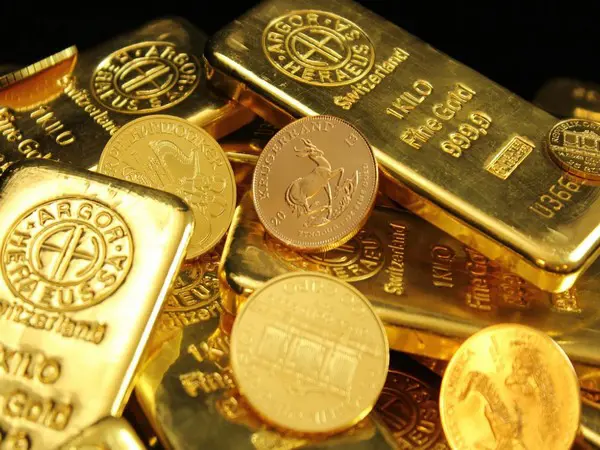
New Delhi [India], March 29 (ANI): US tariff uncertainties are likely to push gold prices to Rs 87,000- Rs 90,000 in the first half of the calendar year 2025 (January- June), according to a report by ICICI Bank Global Markets.
Currently, the gold prices are at around Rs 83,410 per 10 grams for 22-carat and Rs 90,990 per 10 grams for 24-carat, publicly available data showed.
The report added that the uncertainties arising due to the tariffs will ensure the investment-related demand for gold is in place.
Beginning on April 2, the Trump administration intends to implement reciprocal tariffs on trading partners as part of the “Fair and Reciprocal Plan”.
In India, the local gold prices rose by 4 per cent in the past month, reflecting the global market trend and an appreciation of 2 per cent in rupee terms against the US dollar.
“Going forward, local gold prices are expected to trade with an upside bias in the INR 87,000 per ten grams to Rs 90,000 per ten grams range in 1H2025 and moving to the Rs 94,000 per ten grams to the Rs 96,000 per ten grams range in 2H2025,” the report added.
The report anticipated that the gold prices in the global markets will be in the range of USD 3200 per ounce to USD 3400 per ounce level by December 2025.
Additionally, the US Federal Reserve‘s potential decision to lower interest rates in 2025 and 2026 could make gold more attractive, as lower US yields may support gold demand, the report added.
Central banks may also continue to diversify their reserves by holding more gold, which could keep prices steady for the long term, as per the report.
“Elevated levels of gold prices appear to be weighing on jewellery demand, which worked to pull gold imports to their lowest level in the past 11 months, at USD 2.3bn, reflecting a 14 per cent MoM decline and a 63 per cent YoY decline. Demand should pick up, responding to the festive related seasonal demand that tends to take place,” the report added.
However, gold fund flows into local ETFs still remain fairly robust, as the World Gold Council (WGC) has reported. Gold ETFs recorded inflows to the tune of Rs 19.8bn in February 2025 that were above the average net inflow of Rs 14.8bn recorded in the preceding nine months.

FULL LIST: 11 new NNPC Limited board members

BREAKING: Tribunal throws out petition challenging Gov Okpebholo’s election victory in Edo

US Senator breaks record for the longest speech ever on the senate floor with over 24 hours
Trending

 Trending5 months ago
Trending5 months agoNYA demands release of ‘abducted’ Imo chairman, preaches good governance
- Business5 months ago
US court acquits Air Peace boss, slams Mayfield $4000 fine

 Politics5 months ago
Politics5 months agoMexico’s new president causes concern just weeks before the US elections
- Entertainment5 months ago
Bobrisky transferred from Immigration to FCID, spends night behind bars
- Entertainment5 months ago
Bobrisky falls ill in police custody, rushed to hospital

 Politics5 months ago
Politics5 months agoRussia bans imports of agro-products from Kazakhstan after refusal to join BRICS

 Politics5 months ago
Politics5 months agoPutin invites 20 world leaders
- Politics1 year ago
Nigerian Senate passes Bill seeking the establishment of the South East Development Commission.
